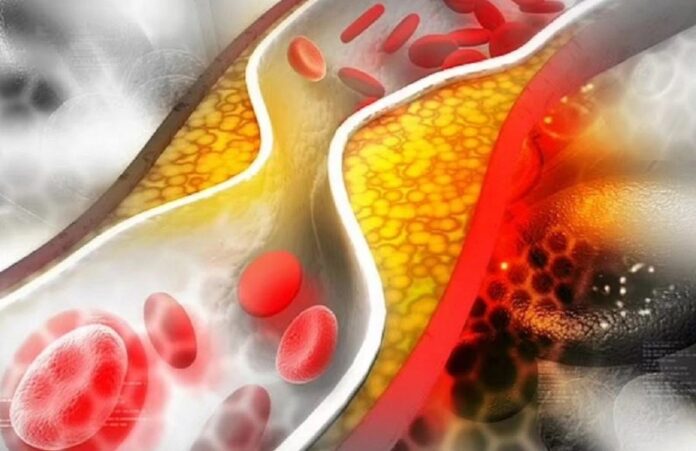Introduction
Obesity and cardiovascular diseases (CVDs) have reached alarming levels worldwide. According to the World Health Organization (WHO), over 1.9 billion adults were overweight in 2020, with 650 million classified as obese. In Vietnam, obesity rates have also risen significantly, particularly in urban areas, posing a serious threat to public health. The relationship between weight and cardiovascular health is well-documented: excessive body weight increases the risk of hypertension, coronary artery disease, and stroke. This article aims to present a clear and scientific understanding of how weight loss positively impacts cardiovascular health.
Mechanisms by Which Weight Loss Affects Cardiovascular Health

- Reduction in Excess Fat
- Visceral Fat and Subcutaneous Fat: Visceral fat, which surrounds internal organs, is particularly harmful as it secretes inflammatory substances that contribute to CVD. Subcutaneous fat, though less dangerous, also poses risks when excessive.
- Mechanism of Fat Loss: Weight loss, achieved through a calorie deficit, promotes the breakdown of stored fats for energy, reducing visceral fat and alleviating its harmful effects on the heart.
- Improvement in Biochemical Indicators
- Cholesterol Levels: Weight loss reduces LDL (low-density lipoprotein) cholesterol, often referred to as “bad cholesterol,” while increasing HDL (high-density lipoprotein) cholesterol, the “good cholesterol.”
- Triglycerides: Lowering triglyceride levels decreases the risk of atherosclerosis.
- Blood Sugar Balance: Weight reduction improves insulin sensitivity, lowering the risk of diabetes—a significant risk factor for CVD.
- Reduction in Blood Pressure
- Weight loss leads to a decrease in blood pressure by improving vascular elasticity and reducing stress on the heart.
- Maintaining healthy blood pressure is critical for preventing strokes and heart attacks.
- Lessening the Heart’s Workload
- In individuals with obesity, the heart must pump harder to supply blood to an expanded network of blood vessels. Weight loss reduces this burden, enhancing the heart’s efficiency and longevity.
Scientific Studies on Weight Loss and Cardiovascular Health

Numerous studies, both international and domestic, confirm the cardiovascular benefits of weight loss:
- A meta-analysis published in The Lancet found that a 5-10% reduction in body weight significantly decreased the risk of hypertension and improved lipid profiles.
- Research conducted in Vietnam demonstrated similar findings, highlighting the benefits of combining a healthy diet with regular exercise.
- Studies comparing different methods of weight loss (diet, exercise, medication, and surgery) suggest that sustainable lifestyle changes yield the best long-term results.
These findings underscore the critical role of weight loss in preventing and managing cardiovascular conditions.
Specific Benefits of Weight Loss for Cardiovascular Health
- Prevention and Improvement of CVD
- Lower blood pressure and cholesterol levels.
- Reduced risk of atherosclerosis and stroke.
- Mitigation of heart failure risks.
- Enhanced Quality of Life
- Increased energy levels and reduced fatigue.
- Better sleep quality and reduced sleep apnea.
- Overall improvement in physical and mental health.
Safe and Effective Weight Loss Strategies

- Dietary Guidelines
- Build a balanced diet rich in fruits, vegetables, whole grains, lean protein, and healthy fats.
- Limit consumption of processed foods, sugary drinks, and trans fats.
- Exercise Recommendations
- Incorporate both aerobic exercises (e.g., walking, cycling) and strength training.
- Aim for at least 150 minutes of moderate-intensity exercise per week.
- Lifestyle Adjustments
- Manage stress through mindfulness practices and hobbies.
- Prioritize sufficient sleep (7-9 hours per night).
- Avoid smoking and excessive alcohol consumption.
Conclusion
Weight loss plays a pivotal role in safeguarding cardiovascular health. By reducing fat, improving biochemical markers, and easing the heart’s workload, weight management effectively lowers the risk of numerous heart-related conditions. Beyond physical health, weight loss enhances overall well-being and quality of life.
To achieve and maintain a healthy weight, individuals should adopt sustainable lifestyle changes, including a balanced diet, regular exercise, and stress management. Consulting with healthcare professionals is essential before embarking on any weight loss program to ensure safety and effectiveness.
References

- World Health Organization. (2020). Obesity and Overweight Factsheet.
- American Heart Association. (2021). Weight Loss and Cardiovascular Health.
- Nguyen, T. T., & Pham, H. V. (2019). Impact of Weight Loss on Health in Vietnam. Vietnam Medical Journal.
- The Lancet. (2021). Meta-Analysis on Weight Reduction and Cardiovascular Risk Factors.
This article is a call to action for individuals and communities to prioritize weight management as a cornerstone of heart health.



